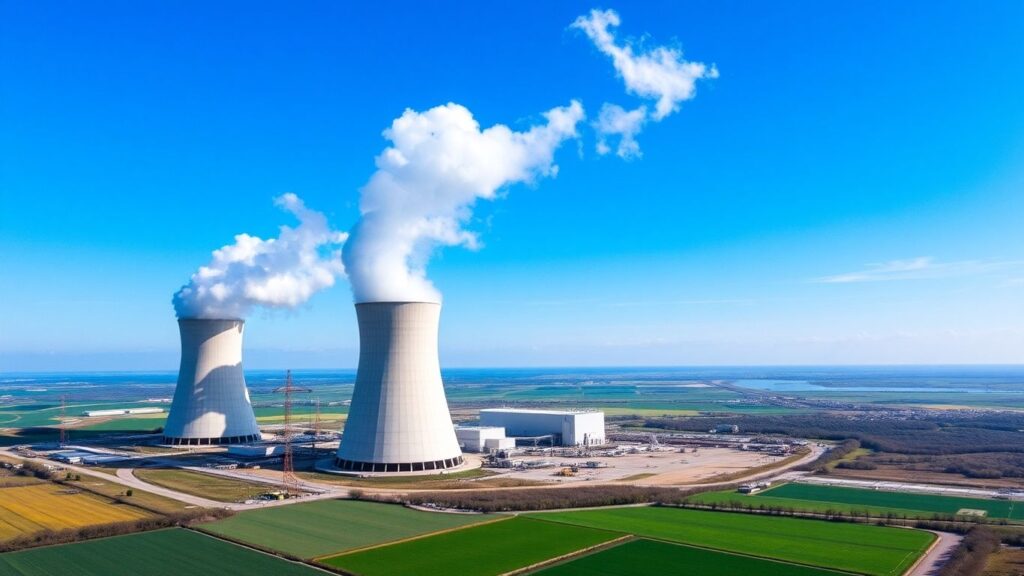Hungary is set to commence preliminary work for the introduction of U.S. small modular nuclear reactor (SMR) technology, according to Foreign Affairs and Trade Minister Péter Szijjártó. This move signifies a significant step in the nation’s nuclear energy strategy, with companies already signing a letter of intent for the deployment of GE Hitachi’s BWRX-300 units.
Key Takeaways
- Hungary will begin preliminary work for U.S. SMR technology.
- A letter of intent has been signed for the deployment of GE Hitachi’s BWRX-300 units.
- The BWRX-300 is described as the most commercially advanced SMR available.
Advancing Nuclear Energy
Hungary’s decision to explore SMR technology reflects a broader trend in the global nuclear industry towards more flexible and potentially cost-effective reactor designs. Small modular reactors offer the possibility of faster construction times and smaller footprints compared to traditional large-scale nuclear power plants.
Strategic Partnership
The involvement of U.S. technology, specifically GE Hitachi’s BWRX-300, highlights international collaboration in the nuclear sector. The BWRX-300 is a boiling water reactor designed to be simpler and more economical to build, leveraging existing supply chains and technologies. The signing of a letter of intent by relevant companies indicates a commitment to moving forward with the practical aspects of integrating this technology into Hungary’s energy infrastructure.
Future Implications
This initiative positions Hungary to potentially enhance its energy security and diversify its energy sources. The successful deployment of SMRs could pave the way for future nuclear projects and contribute to the country’s climate goals by providing a reliable source of low-carbon electricity. Further details on the scope and timeline of the preliminary work are expected as the project progresses.












